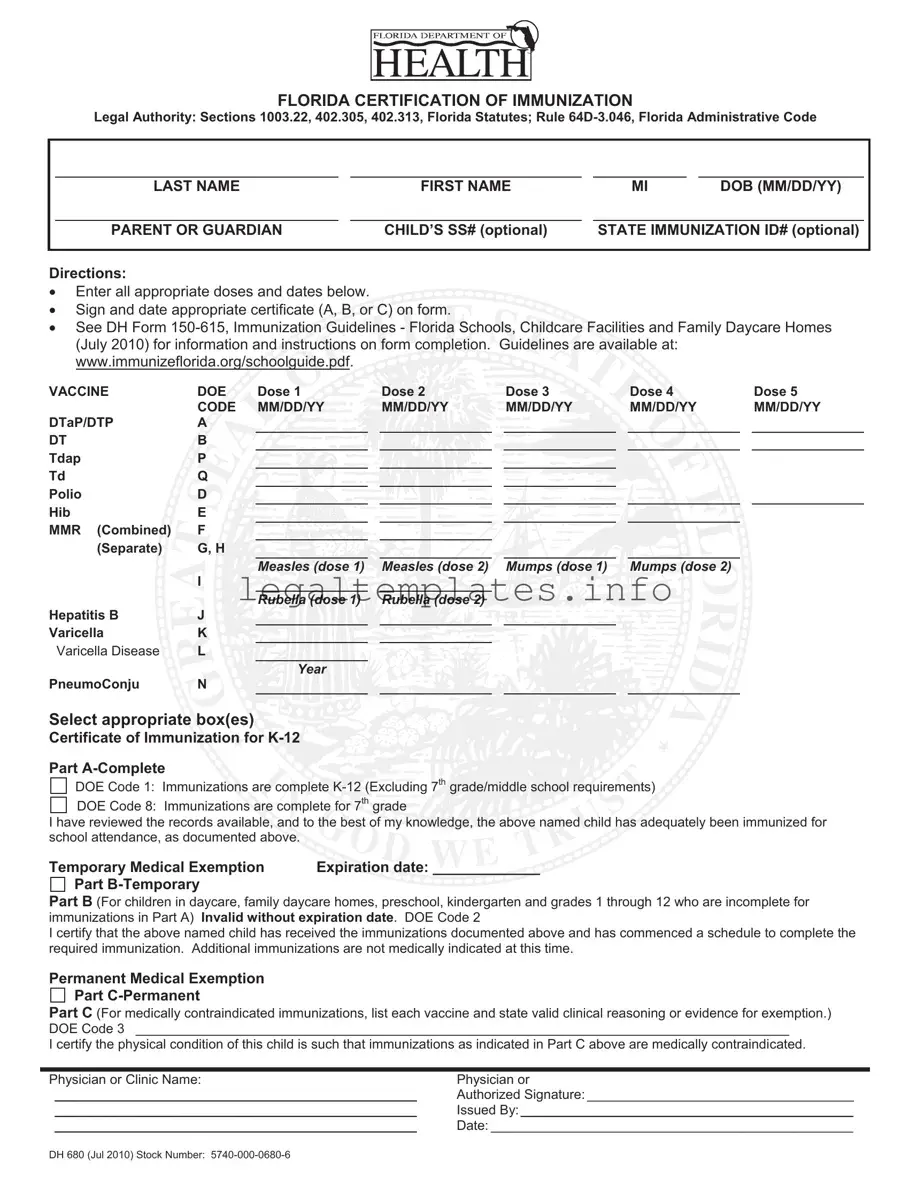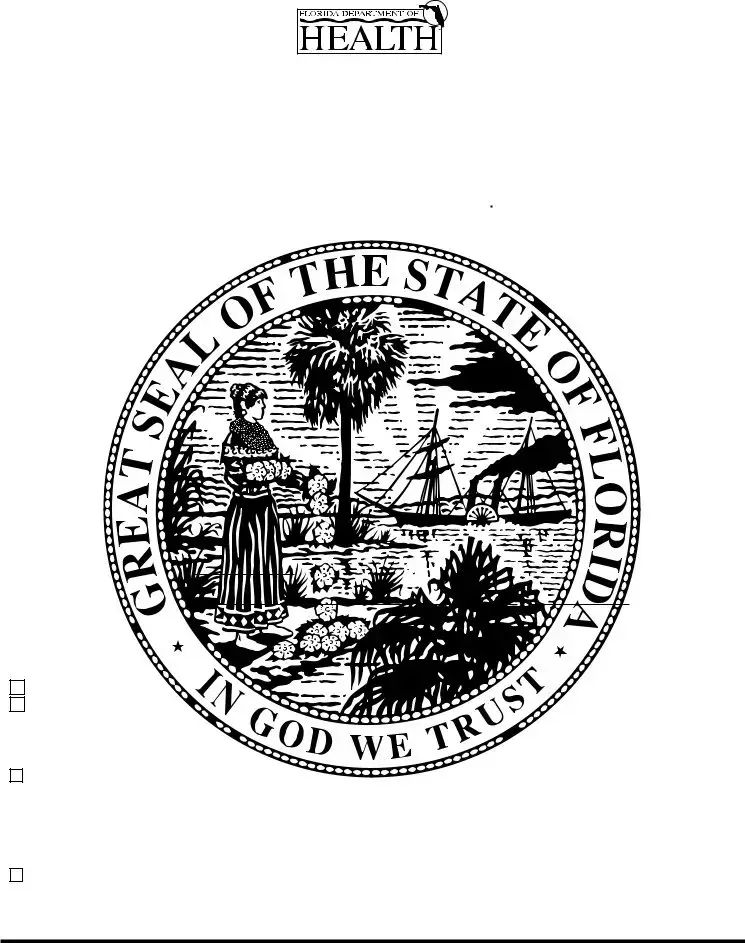What is the DH 680 form used for?
The DH 680 form, also known as the "Florida Certification of Immunization," is a document required in Florida for documenting a child's immunization records. This form is necessary for enrollment in schools, childcare facilities, and family daycare homes within the state, serving as official proof that the child has received all the required vaccinations.
Where can I obtain the DH 680 form?
This vital form can be obtained from your child's healthcare provider or the local health department. These entities are authorized to complete and sign the form, ensuring that it meets the requirements set forth by Florida law and regulations.
Can the DH 680 form be completed online?
At this time, the DH 680 form cannot be completed online due to the necessity of an authorized healthcare provider's signature verifying the immunization records. However, electronic records maintained by healthcare providers or local health departments may facilitate the process of obtaining a completed form.
What information is required on the DH 680 form?
The form requires detailed information about the child's immunization history, including doses of vaccines and the dates they were administered. Additionally, personal information such as the child's name, date of birth, and the parent or guardian's details are needed to accurately identify the immunization record. A healthcare provider must review these records and sign the form, certifying its accuracy.
What are parts A, B, and C on the DH 680 form?
Part A is completed when a child is fully up to date with their immunizations, barring 7th-grade requirements. Part B covers temporary medical exemptions, used when a child has started but not yet completed the full immunization schedule. Part C is for permanent medical exemptions, indicating specific vaccines that are medically contraindicated for the child, with each vaccine and the reasoning needing to be listed.
How do I obtain a medical exemption through the DH 680 form?
For a medical exemption, a healthcare provider must certify that certain immunizations are medically contraindicated for the child. This information is detailed in Part C of the form, where the provider lists the specific vaccines and provides valid clinical reasoning or evidence for the exemption.
Is the child's Social Security number required on the DH 680 form?
Providing the child's Social Security number on the DH 680 form is optional. The form also allows for the inclusion of a state immunization ID number, which can serve as an alternative identifier for maintaining and accessing the child's immunization records.
How long is the DH 680 form valid?
The validity of the DH 680 form typically corresponds with the timing of required booster shots or any updates to a child's immunization schedule. Temporary medical exemptions (Part B) include an expiration date, by which further immunization or an update to the form is necessary. Permanent medical exemptions (Part C) do not expire but should be updated as needed based on the child's health status.
Who can sign the DH 680 form?
The DH 680 form must be signed by a healthcare provider who is authorized to administer vaccines. This includes physicians, nurse practitioners, and other clinic or health department staff designated to manage immunization records and validate that the child has received the required vaccinations according to Florida's guidelines.



 or C) on form.
or C) on form.










 box(es)
box(es)
 K-12
K-12 are complete for 7
are complete for 7 and to the best of my knowledge, the above named child has adequately been immunized for school attendance, as documented above.
and to the best of my knowledge, the above named child has adequately been immunized for school attendance, as documented above.

